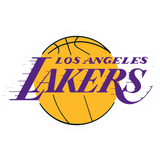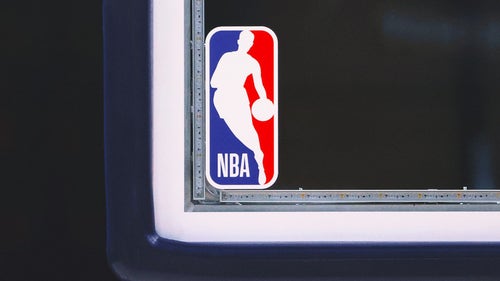
3 Questions for the Lakers Front Office
October 22, 2015; Anaheim, CA, USA; Los Angeles Lakers executive Jim Buss in attendance as the Lakers play against the Golden State Warriors during the second half at Honda Center. Mandatory Credit: Gary A. Vasquez-USA TODAY Sports
Not only did the Los Angeles Lakers endure their worst loss in team history to the Dallas Mavericks on Sunday, but they are also now tied with the Miami Heat for the second-worst overall record in the NBA, ahead of only Brooklyn.
Remember the surprising early success of the Lakers at the beginning of the season? It seems now that was little more than a mirage camouflaging the truth: they are a team in full rebuild mode. Fans who were seduced by the team’s impressive start must now adapt to that reality.
Instead of making the playoffs this season, the Lakers will almost certainly participate once again in the NBA draft lottery, where they will hope to retain their first-round pick only if it lands in the top 3. If that happens, debates will then be centered around whether they should keep the pick or trade it. But that’s a discussion for a later time.
For now, it is more instructive to think about what course of action the team should follow. Is it time to reconsider what should be done to make the Lakers competitive going forward? In particular, the front office needs to answer the following three questions.
How Good Will the ‘Baby Lakers’ Become?
Dec 16, 2016; Philadelphia, PA, USA; Los Angeles Lakers forward Brandon Ingram (14) in action against the Philadelphia 76ers during the second quarter at Wells Fargo Center. The Los Angeles Lakers won 100-89. Mandatory Credit: Bill Streicher-USA TODAY Sports
Is management pleased with the growth and improvement of each of their young players? Which, if any, do they feel is on track to become a future all-star?
Brandon Ingram is still in work in development, but his on-court performance, especially his shooting, has advanced as his rookie season has progressed. He will likely never be another Kevin Durant, as fans once hoped, simply because Durant is a one-of-a-kind shooter. But perhaps he can eventually morph into a rough equivalent of Giannis Antetokounmpo, the so-called ‘Greek Freak’, who is an All-Star starter this year at age 22. Both players are multi-dimensionally talented. They each handle the ball exceptionally well for their size, have superior court vision and have incredibly long arms that they use effectively. Ingram is only 19, and virtually all scouts rave about his enormous potential. Do the Lakers feel he will ultimately be their star player?
More from Lake Show Life
Both players are multi-dimensionally talented. They each handle the ball exceptionally well for their size, have superior court vision and have incredibly long arms that they use effectively. Ingram is only 19, and virtually all scouts rave about his enormous potential. Do the Lakers feel he will ultimately be their star player?
D’Angelo Russell, who missed the Dallas game due to injury, has received his share of criticism this season, mostly for his inconsistency. Some games he shines, providing a captivating combination of shooting marksmanship and expert passing. But too often he shoots poorly and commits sloppy turnovers.
Is this merely the growing pains that a 19-year-old point guard must endure in his second NBA season, or is it an indication of a less-than-stellar future? Many fans have grown frustrated with Russell and urge Lakers management to trade him now. Yet the team still remains intrigued by his potential and continues, at least publicly, to hold him in high regard. They do not seem ready to give up on him or trade him anytime soon.
Julius Randle is considered by some to be the best Laker on the court this season. When motivated, he is a double-double machine with a warrior mentality. His shooting, passing and rim protection defense have all improved. But there are games where he seems lackadaisical and he becomes too much of a spectator. Can he become more consistently involved? At age 22, in only his second year in the NBA, just how high does management feel his eventual peak will be?
Should They Make Any Trades?
Nov 29, 2015; Los Angeles, CA, USA; Los Angeles Lakers general manager Mitch Kupchak speaks to the media before the game against the Indiana Pacers at Staples Center. Mandatory Credit: Richard Mackson-USA TODAY Sports
It’s easy for fans to say that the team should trade one or more of the veteran players Lou Williams, Nick Young, Timofey Mozgov, Luol Deng or Jose Calderon. However, most of those same fans vastly overrate what the Lakers would receive in return. All five veterans have their strengths, and all continue to serve useful purposes as role players on the team.
However, none of them are stars nor will any of them bring back a star in a trade. Rather, the Lakers would likely get back another veteran’s contract, although they might also net a second-round pick, or possibly a late first. Would that have enough impact to change the Lakers future prospects?
Of course, they’d receive more value if they added a Baby Laker into a trade. But there’s still the question of what they’d really get in return. The more likely scenario is that Coach Luke Walton will cut down some of the veterans’ playing time in the season’s second half in favor of the younger Lakers, including Larry Nance Jr., who just returned from injury, and Ivica Zubac, the 19-year-old still-raw 7-footer who they are trying to bring along slowly.
Should They Remain Patient and Stay the Course?
Jan 10, 2017; Los Angeles, CA, USA; Los Angeles Lakers head coach Luke Walton (right) talks with guard D’Angelo Russell (1) and guard Jordan Clarkson (6) during the fourth quarter against the Portland Trail Blazers at Staples Center. The Portland Trail Blazers won 108-87. Mandatory Credit: Kelvin Kuo-USA TODAY Sports
In the offseason, management essentially decided to hand the keys to the team engine over to the Baby Lakers. That’s why they signed or traded for the likes of Mozgov, Deng and Calderon rather than pursuing higher-priced big-name stars. They sought veterans who could help mentor the youngsters while not demanding too many touches that could hinder their development.
Mitch Kupchak also understood how difficult it is in today’s NBA to rebuild a team from scratch. He learned first-hand in previous seasons that premiere free agents do not ordinarily sign with bottom echelon teams. Instead, a team must first have the nucleus of an attractive roster, presumably built through the draft, as Golden State, San Antonio and Oklahoma City all did. He hoped that the growth of the team’s young players will help attract free agents in the future.
Kupchak knows that rebuilding can be a slow, often painful process. His public statements indicate that he believes in and remains committed to the Baby Lakers. The challenge for him is to determine whether that is, indeed, a winning road to pursue, and then to maintain the patience necessary to stay on that course while losses pile up and fan frustration grows.





